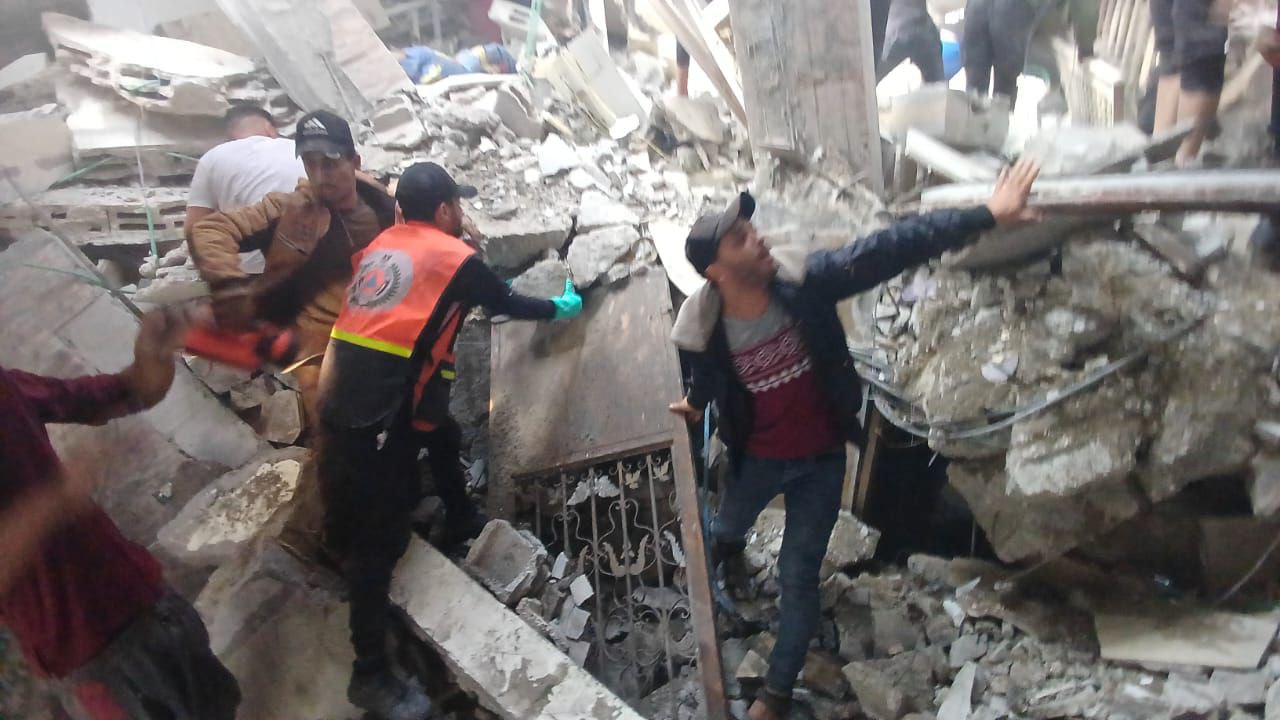Reflecting on Nakba: Voices from a Fractured Homeland
As Palestinians mark the 76th anniversary of the Nakba amid ongoing conflicts, voices around the world resonate with stories of displacement, survival, and the unyielding hope of return.
Published May 16, 2024 - 00:05am

Image recovered from shorouknews.com
The Chinese Foreign Ministry expressed strong opposition to the expansion of the war in the Gaza Strip to include the Palestinian city of Rafah. On the 76th anniversary of the Nakba, May 15th, the Chinese Foreign Ministry condemned the aggression that has continued for 222 consecutive days, as per a statement made to the 'Al Jazeera' news network. They highlighted the extensive injustice suffered by the Palestinian people, predating back to 76 years ago when more than half of the Palestinian population was displaced.
Current commemorations took place under the banner 'Despite genocide, we remain; despite displacement, we will return.' In Ramallah, citizens marched from the mausoleum of the late President Yasser Arafat. Throughout Palestinian territories, and indeed across the diaspora, Palestinians held rallies, carrying flags bearing the names of towns their ancestors left and Palestinian flags draped in black, along with those depicting 'the key of return.' On this day, approximately 5.9 million Palestinian refugees are scattered across Gaza, the West Bank, Jordan, Lebanon, and Syria, aside from those worldwide.
Meanwhile, the Palestinian Central Bureau of Statistics reported that, since the Nakba, the number of Palestinians has nearly increased tenfold, with 14.63 million globally at the end of 2023. In the current landscape, approximately 7.3 million Palestinians reside in historical Palestine against an estimated 7.2 million Jews by the end of 2023, making the demography nearly evenly split.
On the other side, Israel, celebrating its 76th anniversary, nears a population of 10 million, with a noticeable slowdown in immigration and population growth rates. Today, roughly 45% of the global Jewish population resides in Israel. The Israeli census office and reports by 'Times of Israel' have highlighted demographic projections, anticipating that by Israel's centennial in 2048, the population may reach 15.2 million.
As these anniversaries pass, Palestinians in the West Bank revived the memories of Nakba with various activities and demonstrations, insisting on their right of return. They view recent assaults on Gaza and the West Bank as a continuation of the historical Nakba. Accusations stack against both Israel and the U.S. for perpetuating the conflict. Specifically, Palestinians criticize the American military aid to Israel and the use of vetoing powers, viewing it as enabling the ongoing strife and opposition to Palestinian rights. International judicial attention is drawn as the International Court of Justice holds sessions on the Zionist attack on Rafah.
The narrative intertwines with the ongoing conflict in Gaza, where an Israeli attack in the southern city of Rafah has displaced 450,000 people, leading to a United Nations declaration that there is 'no safe place' in Gaza. Sorrowfully, the Palestinian Central Bureau of Statistics documented over 134,000 Palestinian and Arab martyrs since 1948, with recent Israeli aggression in Gaza since October 2023, resulting in more than 35,000 deaths, predominantly children and women, according to Palestinian health ministry records.
The stark disparities in commemorative perspectives highlight the contrast in national narratives and the complexities of the Israeli-Palestinian conflict. This year's events are particularly charged due to recent escalations in violence, which have drawn international condemnation and calls for de-escalation from numerous countries and international organizations. The escalation has led to a renewed focus on the humanitarian situation in Gaza, a densely populated area that has faced long-term blockades, restricting the flow of goods and services, thereby exacerbating the suffering of its residents.
Tensions have also been reflected in the diplomatic arena. Countries with strong historic support for the Palestinian cause have restated their commitment to Palestinian rights and statehood. Conversely, nations with close ties to Israel continue to endorse Israel's right to defend itself, while some have urged for restraint and a resolution to avoid further civilian casualties.
In an effort to facilitate dialogue, the United Nations and Egypt have been involved in brokering ceasefires and initiating peace talks, although progress has been hampered by deep-seated mistrust and the absence of a unified Palestinian representation. The European Union and other international entities have emphasized the importance of returning to negotiations for a two-state solution, recognizing the struggles faced by both Palestinians and Israelis.
Amidst the turmoil, human rights groups have been actively documenting and reporting incidents, and there has been an upsurge in digital activism, with social media being used as an influential platform to share images and stories from the ground. These efforts serve to maintain international awareness and advocate for the rights of those caught in the crossfire.
Furthermore, the economic impact of the conflict remains profound. The Palestinian economy has experienced severe downturns due to the destruction of infrastructure, limitations on trade, and restricted access to natural resources. International aid has been a critical lifeline, but the need for a sustainable economic framework is evident. In Israel, the cost of maintaining security and the conflict's impacts on international relations and investments also pose significant challenges.
The Israeli-Palestinian conflict persists as one of the most enduring and complex issues of our time. The Nakba commemorations and the conditions in Gaza highlight the ongoing quest for national identity, land, and justice. Both sides of the conflict harbor generations of grievances and trauma, which continuously fuel the cycle of violence. The international community remains divided on how best to support a path to peace, with few signs of a breakthrough on the horizon.







